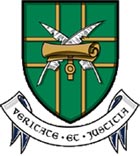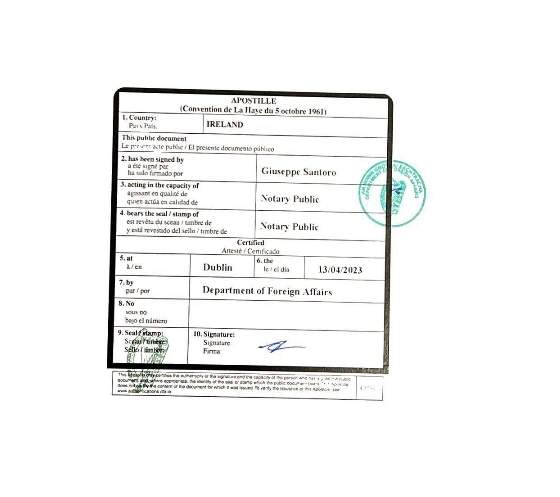A bit about Apostilles
What is Legalisation anyway?
Legalisation is an umbrella term for the process of taking a document in one country and making it suitable for legal and formal use in another country. It can apply to many different types of documents but most commonly it applies to (a) identity verification documents (such as passports and proof of address), (b) academic and professional credentials (such as teaching or medical or healthcare qualifications), and (c) powers of attorney (where a person in one country gives formal legal authority to one or more people in another country to act on their behalf).
Apostille and Legalisation
When it comes to document legalisation, there are two main types: Hague Convention Apostille seal and consular legalisation. The choice between them depends on the destination country and the authorities to which the document will be submitted.
An 'Apostille' stamp, also known as "simplified legalisation" or "Apostillisation," is used for countries that have acceded to the Hague Convention. This eliminates the need for consular legalisation and simplifies the process. On the other hand, consular legalisation involves a more formal procedure for making a document legal in another country.
An Apostille certifies the authenticity of a public officer's signature and/or seal, such as a Dublin Notary Public, on a public document. It acts as a 'fast-track' version of legalisation. Generally, document legalisation is required when submitting a document to authorities in another country. However, some documents are exempt from this requirement, and certain bilateral agreements may abolish the need for legalisation.
The Department of Foreign Affairs (DFA) issues Apostille certificates in Dublin. The certificate can be attached to or stamped on the public document that requires apostilling. The process involves presenting the document at the Department of Foreign Affairs, paying the relevant fee, and obtaining the Apostille certificate.
The Department also authenticates notarisations to allow for consular legalisation under the of Foreign Affairs issues Apostille certificates in Dublin. This certificate can be attached to or stamped on the public document that requires apostilling. The process involves presenting the document at the Department of Foreign Affairs, paying the consular fee, and obtaining the Apostille certificate.
The Hague Convention, currently (as of May 2023) consisting of 125 States, established the Apostille procedure. Ireland ratified the Convention in 1999. To check if the Apostille procedure applies to a specific country, refer to the Hague Convention website.
Legalisation, sometimes spelled 'Legalization,' is an internationally recognized procedure for certifying the authenticity of official signatures and seals on a public document. It involves a chain of verifying signatures, starting with the first signatory and ending with the diplomatic or consular representative of the intended country. This process typically includes attestation or certification by a Notary Public in Dublin or elsewhere, authentication by the DFA, and finally, legalisation by the foreign country's consular representative.
However, document legalisation is not always necessary. There are three cases where it may be exempted: (a) when the receiving institution does not require legalisation, (b) when a bilateral agreement between Ireland and the destination country abolishes the requirement (eg in the case of Italy and its implementation of the Brussels Convention), or (c) when the document type is not eligible for legalisation.
In summary, the 1961 Hague Convention eliminated the need for legalisation of foreign public documents between member countries. The DFA in Ireland can authenticate and apostille various documents of Irish origin, including certificates, company documents, court documents, educational certificates, medical reports, and Garda clearance letters.
One Step, Two Step, Three Step
So in summary, getting an Apostille certificate can be a one step process (if you are dealing with an Irish Government-issued document such as a birth certificate or a marriage certificate).
Most likely your experience of getting an Apostille certificate will be a two step process. First you will get your document(s) notarised and then you'll get those notarised documents apostilled with the DFA.If you're a little unlucky and are dealing with a country that is not part of the Hague Convention system, you'll need to first get your document notarised. Then the DFA will authenticate your notary's certification. Finally, the consulate of the country in which your document will be used will complete the legalisation.
What's the process?
To get your document authenticated or apostilled, you can present it at the Department's Public Office in Dublin or Cork or send it by post. Include a covering letter with your details, the country of use, and the appropriate fee. The fees are €40 per Apostille or Authentication, with additional fees for inter-country adoptions and post-placement reports.
Payment can no longer be made in cash at the Department's offices in Dublin and Cork. While you can pay with a bank draft or postal order, card and phone payment is encouraged and almost everyone pays with a credit or debit card or with their phone.
Online verification
One little-known benefit of the apostille process is that you can verify the authenticity of an Apostille issued by the DFA through the online electronic register, available since January 2013.
Where to get it done?
The main public office of the Consular Section of the DFA is located at Knockmaun House, 42-47 Lower Mount Street, Dublin D02 TN83.
Opening hours are weekdays (excluding bank holidays) from 09.30 - 12.30 and from 14.30 - 15.30.
The public office in Dublin is closed all day on Wednesdays to facilitate the handling of postal applications.
Applications can also be made by post to the above address. You should send a brief covering letter stating your name, return address, telephone number; you must state what country the document(s) are for use in, and you must include the appropriate fee (which can be paid by credit or debit card).
There is also a DFA Consular office at 1A South Mall, Cork T12 CCN3 but their public office is currently still closed and as of writing they are accepting applications only by post.
What next?
Dublin 2 Notary is experienced in notarising, apostilling and legalising documents for international use. Contact us if you need any assistance on +353 1 6877762 or by email info@dublin2notary.ie or if we can help to answer any questions. You can book appointments directly online and out of hours and weekend appointments are also available for people who may be working unsociable hours (please email for details).

